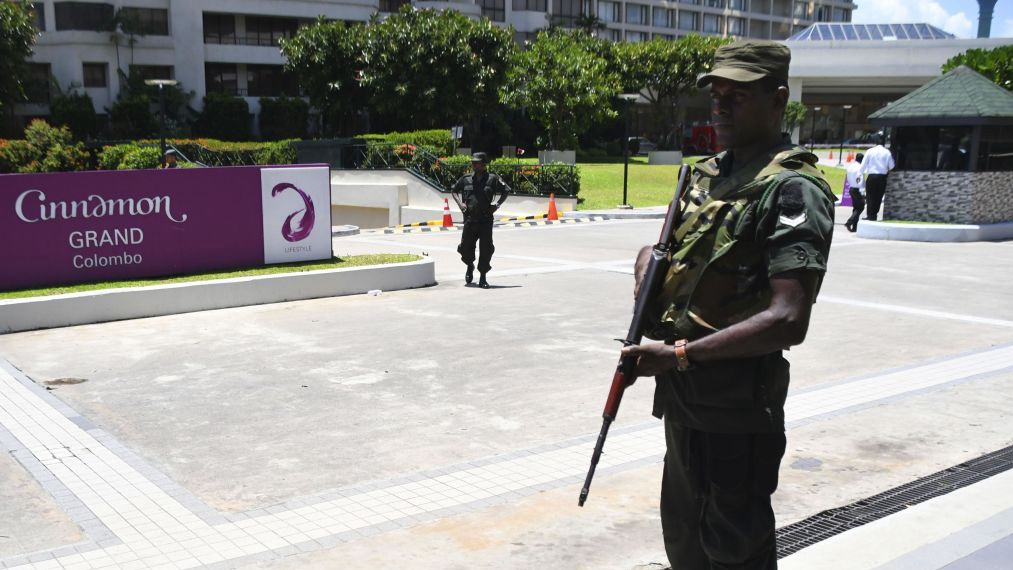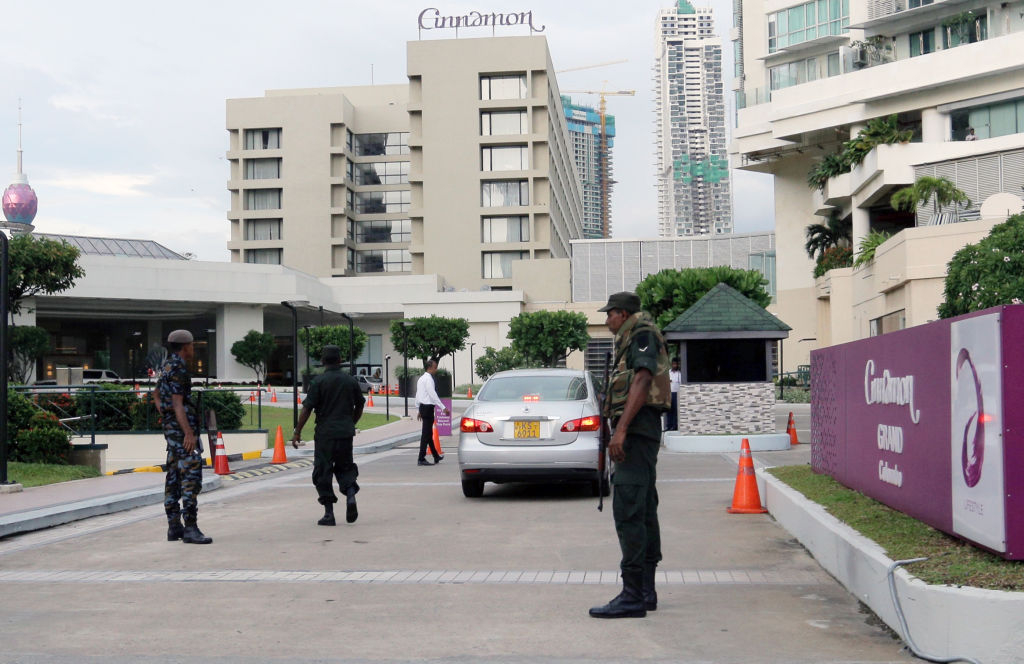
Opinion
08:21, 23-Apr-2019
Sri Lanka attacks highlight counter-terrorism challenges
Updated
11:00, 23-Apr-2019
Xu Sicong

Editor's note: Xu Sicong is an opinion editor at CGTN. The article reflects the author's views, not necessarily those of CGTN.
On April 22, one month after the devastating Christchurch mosque shootings in New Zealand, eight coordinated terrorist attacks took place in quick succession in another island nation, Sri Lanka. The event has quickly grabbed world attention as it witnessed the death of at least 290 people so far, being one of the deadliest in the country since 2009. The attacks, thus, once again, highlighted the grave challenge terrorism poses to humanity.
So far no group has claimed responsibility for the Sunday attacks. However, it is suspected that they were carried out by local Islamists targeting the country's Christian population as three explosions blasted in Catholic churches where the country's Christians were gathering for Sunday Easter.
BBC also reported that two weeks before the incident the government received warnings of a potential terrorist attack by a local Islamist group called the Nations Thawahid Jaman (NTJ).
Muslims and Christians in Sri Lanka, both minorities in the country, however, are not typically known for locking horns with each other, as the ethnic tensions are mostly between the majority Sinhala Buddhists and other minorities, according to Long Xingchun, professor at the School of Foreign Languages, China West Normal University. Thus, if these attacks were carried out by Muslims against the country's Christian population, they should probably be read in a broader context of global conflicts between Islamists and Western Christianity, he said.
Moreover, the sophistication of the attacks also makes it highly likely that foreign terrorist organizations like ISIL were involved. Long pointed out that some Islamists in Sri Lanka traveled to the Middle East, such as Iraq and Syria several years back where they may have received training from foreign terrorist groups.
As the investigation is ongoing, no one can yet jump to a conclusion. Nevertheless, once the attackers are identified, measures need to be taken accordingly to prevent such an event from happening again.
If it is established that an international linkage is present in this case, the Sri Lankan government needs to make a concerted effort with the international community to combat the spread of terrorism facilitated by foreign terrorist forces.
For example, in 2015 and 2016, Europe was also mired in a series of attacks associated with the ISIL. Some of the attacks were carried out by the organization's fighters who traveled to European countries.
For this reason, the EU has since enhanced coordination on their counter-terrorism strategy. Specifically, member states are required to share information about travelers and to join a database.
Partly due to the demise of ISIL, and partly as a result of the coordinated counter-terrorism efforts, Foreign Affairs observed that in 2018, such terror attacks "have become relatively rare."

Sri Lankan military personnel inspect a vehicle upon arrival at the Cinnamon Grand Hotel in Colombo, Sri Lanka, April 22, 2019. /VCG Photo
Sri Lankan military personnel inspect a vehicle upon arrival at the Cinnamon Grand Hotel in Colombo, Sri Lanka, April 22, 2019. /VCG Photo
This example underscores the need for international cooperation in today's global counter-terrorism efforts. At the same time, with the convenience of social media and its ability to disseminate information at lightning speed, its role in terrorist attacks has also been brought to public attention in recent years.
Following the Sri Lanka attacks, a social media blackout was ordered by the Sri Lankan government to make sure no disinformation regarding the blasts and the investigation is circulating.
During last month's New Zealand attack, the same issue with social media emerged as well, as the shooting was livestreamed on Facebook for the initial 17 minutes and according to media reports, "The footage was successfully re-uploaded to Facebook 300,000 times in the first 24 hours after the attack."
This calls attention to the dilemma many countries are caught in amid their counter-terrorism efforts: The use of social media has had the unintended consequence of facilitating the spread of hateful messages that could well trigger tensions between different social and ethnic groups and incite violence.
In the fight against ISIL, the Internet is also identified as an essential tool for terrorists through which they can recruit new members, spread extremist messages and coordinate terrorist action. It is recognized that the New Zealand attacker has been inspired by the Norwegian mass murderer Anders Behring Breivik through social media.
Thus, apart from addressing what triggered terrorism, governments around the world should take the initiative to strengthen online regulations to prevent the weaponization of social media to facilitate terrorist attacks. For example, in the wake of the Christchurch mosque attack in New Zealand, the Australian government passed a more stringent law limiting the type of content that can be shared on social media.
All in all, terrorism has its roots in human history that goes as far back as the first century. As we come to the 21st century, novel situations have emerged where human beings are facing new conditions conducive to the spread of terror. With this in mind, we need to tackle the issue with a more coordinated global strategy as well as new tools we can harness.
(If you want to contribute and have specific expertise, please contact us at opinions@cgtn.com)

SITEMAP
Copyright © 2018 CGTN. Beijing ICP prepared NO.16065310-3
Copyright © 2018 CGTN. Beijing ICP prepared NO.16065310-3